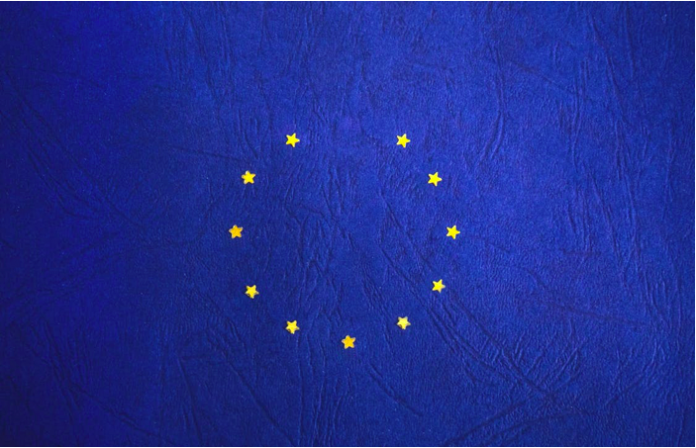Throughout the main countries in Europe there are inevitable cultural differences which are influenced by history, changes in political attitudes and religion. These have a definite bearing on each nation’s approach to countess activities and pastimes – including gambling. So, it’s no big surprise that as you travel across the continent you will find different laws and regulations in force.
Generally speaking, European gambling laws are some of the most liberal in the world but, in the area of online gambling, there are a number of key differences across the various countries. This is due to the fact that, compared with “live” casino gambling that has been a popular pastime for centuries, at only a couple of decades old, it’s taking the lawmakers some time to catch up.
You might imagine that the EU would have a say over what is permitted but, while it does regulate some internet services, it has tended to leave specific online gambling laws to countries’ own jurisdictions. This makes it one area where a single market does not feature.
So, here are the key laws for the five European countries with the biggest economies and what they mean for their gamblers.
UK
 The UK has some of the most liberal gambling laws in the world and the economy profits from it hugely as a result.
The UK has some of the most liberal gambling laws in the world and the economy profits from it hugely as a result.
Of all the countries in Europe, it’s the UK that has the most organised and liberal laws when it comes to gambling. These stem from 2005 when the then Labour Government, under Prime Minister Tony Blair, introduced a raft of new measures to legislate over gambling. These included allowing gambling companies to advertise on TV for the first time and the proposed provision of licences for a number of so called “super casinos” to be built in areas in need of regeneration – although none were ever actually built.
This was also when the country’s Gambling Commission was set up to regulate and oversee all forms of gambling including lotteries, horse racing, casinos and all remote operators too. Gambling is generally permitted for anyone over the age of 18 provided it is with an operator with a current licence issued by the Gambling Commission. Since the liberalisation of the laws, there has been a huge increase in the revenue generated by gambling, a figure which reached £14.4 billion in the year from April 2018 until March 2019.
France

Arguably, France is the country where casino gambling originated. Its history goes as far back as in the 18th century, when it first became a fashionable activity for the rich and leisured classes. So, as you would expect, it’s also reasonably liberal when it comes to the law. Three different authorities oversee the activity with The Pari Mutuel Urbain in charge of horse racing, the Francaise des Jeux overseeing betting games and lotteries, and ARJEL in control of online gambling.
In the case of the latter, sports, horseracing and poker are the three forms of online betting permitted. The exclusion of casinos may be a protectionist measure in favor of the country’s “bricks and mortar” establishments, including those in the independent principality of Monaco which are a major attraction for visitors from all around the world. The fact that the otherwise very traditional Casino de Monte Carlo even offers typically American games such as craps is an indication of how keen it is to attract international visitors who know how to play one of gambling’s most complicated games. To brush up your craps skills before your next visit to the casino, discover this detailed blog post written by casino expert John Grochowski for top tips on how to shoot dice.
Germany
In Germany, it’s what could be politely described as being a confused picture and over the last few years there have been a number of events that have led to this situation. For example, in 2008 a law was passed which banned all forms of online gambling not offered by the state. In 2010 a European Court of Justice ruling found that this effectively created a monopoly, so the government was forced to introduce legislation that allowed individual states to create their own laws and permitted a number of private companies access to the market. However, one state, Schleswig Holstein, elected to introduce even more liberal rules.
In 2013 the German government scrapped the legislation hoping to unify laws across the country but, to this day, Schleswig Holstein continues to operate under its own system.
Spain

Spain’s attitude to gambling is very liberal, leading to a growing gambling culture that’s expanding by the day.
Over the years, Spain has introduced a number of changes and amendments to its law and today has one of the most open and comprehensible approaches to both online and offline gambling. The most recent ruling came in 2012 when it opened the market up to any operators who wanted to apply for licences from the Spanish National Gaming Commission.
As a result, both Spanish and international operators are allowed to offer their services in the country and have proved to be very popular. While it may not have quite the same casino culture of France or Germany, there are also a number of these in Spain which are licensed and regulated by the state.
Italy
Similarly, Italy is fairly liberal in its approach to gambling in all of its forms. At around the same time as the UK was opening up to online operators, the country followed suit although it was predominantly for sports betting. In 2011 casino and poker games were added to the list of permitted activities, giving players even more choice.
Looking to the future
In terms of the direction in which legislation is heading across Europe, there seems to be no real impetus to create a unified approach. However, it’s certainly true that any countries that haven’t already done so will be looking to put some firm regulations in place to rule on online gambling.
Turning to the UK, it does seem like there could be a certain tightening up of regulation on online casinos. For example, in April 2020 a new law will come into force forbidding the use of credit cards to pay for gambling. Other measures may well be on the way and, no doubt, the country’s European neighbours will be looking on with great interest.
Disclaimer: This article contains sponsored marketing content. It is intended for promotional purposes and should not be considered as an endorsement or recommendation by our website. Readers are encouraged to conduct their own research and exercise their own judgment before making any decisions based on the information provided in this article.


































